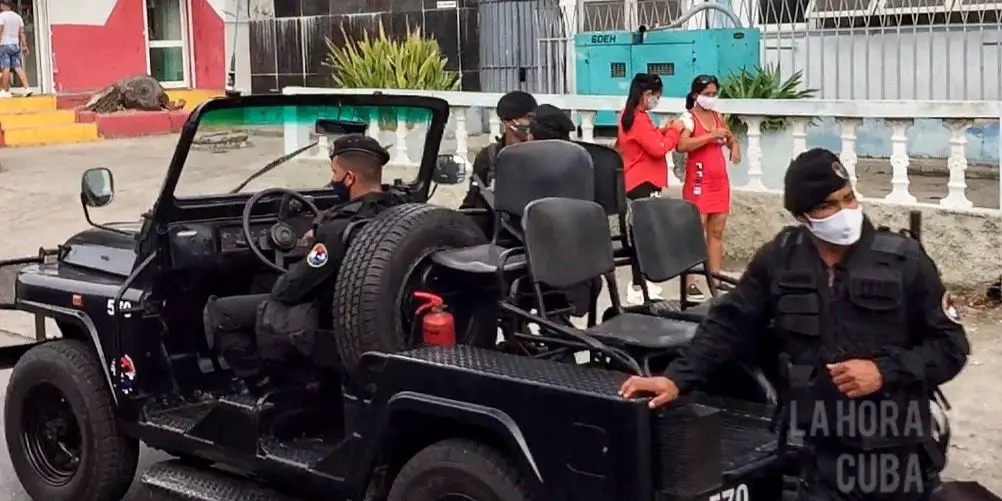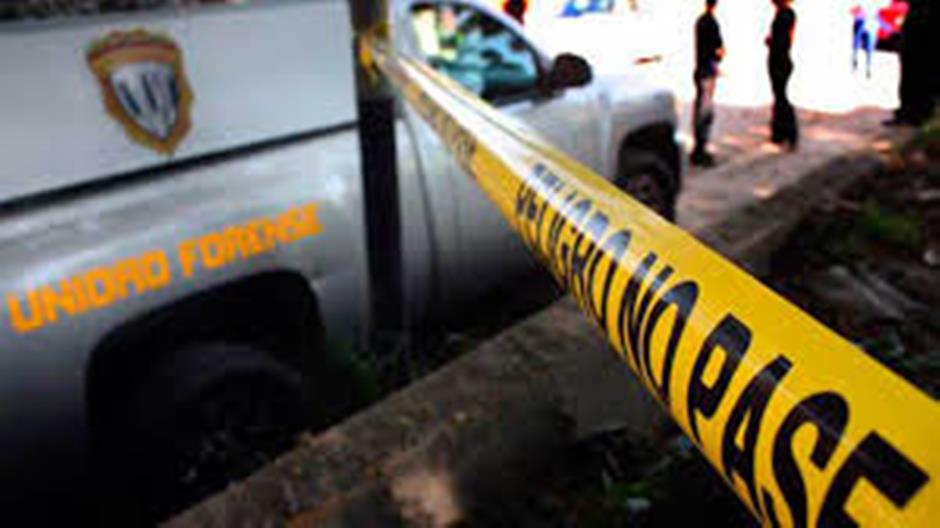Havana Cuba. – Two boxes of chicken of 15 kilograms each and 60 eggs per month. The “jaba”, delivered routinely, also usually contains two large bags of detergent, bath soap, deodorant, razor blades, cooking oil, rice, beans and up to a dozen other basic necessities.
The set has a value of between 300 and 800 dollars (USD) but, since it is intended for officers of the Special Troops ―Black Wasps and Black Berets, of the Revolutionary Armed Forces (FAR) and the Ministry of the Interior (MININT), respectively― as a complement to the salary they receive, it is given to them through a symbolic sale in which each dollar is equivalent to one Cuban peso (CUP) —when the official exchange rate exceeds 120 CUP—. And thus, benevolently, it would be reflected in the accounting of the military units, something that as of the economic reforms implemented in 2021 ceased to happen for state companies, most of which were unable to provide their workers with a similar or inferior “box”.
“About 300 dollars is [el valor de] the smallest pack, but the one for the highest-ranking officers and first officers is more expensive, because they bring double that amount,” he revealed to CubaNeton condition of anonymity, one of the thousands of beneficiaries, a young soldier, member of the Black Wasps and a graduate of the Antonio Maceo Interarms School, in Ceiba del Agua, province of Artemisa.
“The one they give us is not bad; That bag on the street costs thousands of pesos, but the one for the first officers, in addition to being twice as much, brings yogurt, boxes of soft drinks, malt, good rum. Some even sell it because it’s their turn every month and the soaps, detergents, cigarettes, and bottles of rum accumulate. I myself keep a box of chicken and sell the other, because I don’t even have a place to store it, it doesn’t fit in the refrigerator (…). They give us chicken but also pork, hamburger packages, croquettes. No matter how much you want to save, you can’t, and all that is spoiled, you have to sell it,” says the young man, who also confesses that he only remains active in his military specialty because of the incentives he receives monthly and that it was he himself who He asked to join the Black Wasps because of the “differentiated attention” he receives.
“The best attention is for us [Avispas Negras] and for the Special Brigade [Brigada Especial Nacional, del MININT, conocida por el nombre de Boinas negras]. Because the workouts are strong and require reinforced nutrition. And because very few young people want the specialty, and even less now that things are hotter than before, and when a riot breaks out, they are locked up in the unit for days and days (…), it is not easy to do what one does. (…) You know that people protest because they are hungry, because they have a lot of work to do, and you are in it yourself, even if you don’t like it very much (…), because not everyone has the chance to leave [emigrar] or receive money from outside, so it’s hard to have to go out and hit. Many have left because of this, because they have found other options, but those who cannot have to close their eyes and to ahead”, he admits with some ease.
For his part, another soldier from the elite troops of the Cuban regime, with whom we were able to talk about the subject, confirms that the exodus of troops from the military forces has increased since the mass protests of July 2021despite the fact that the efforts of the dictatorship to retain them, and even increase them, have also grown.
“Not everyone puts up with this, people stay for two, three, five years and that’s it, it’s over, then they go to a firm or to take care of embassies, to work as custodians in nightclubs,” says another uniformed officer, also under strict security conditions. anonymity. “Before July 11, the people were already asking for the withdrawal of the troops, there was a lot of pressure, they retained some casualties but in the end they closed several units here in the West, in Artemisa and Pinar del Río, and concentrated them in Mariel, see if they people have gone in these years. But after July 11, that was casualty diarrhea. They had to increase the salary to more than 15,000 pesos and even so, those of us who have not been able to leave are thinking about it. What we do is not paid for with anything. (…) In my group, five or six of the 30 that we started five years ago remained; Most of them returned to their provinces, they went to civil work, or they are already in Yuma (…). When they increased the stimulation it changed a bit, but because they are bringing them from the last part of the East where things are tougher and there they have to hold on to whatever. Note that the first thing they tell you when they come to recruit is the bag they give you. I myself wanted to study Counterintelligence but when they told me ‘chicken box’ I immediately changed, it’s the reality, I can’t tell you anything else. When you spend time here in Havana, you leave, when you see another reality. Since you can look for that and more without having to do what one does, you leave”, says the soldier.
Before the protests of July 11, according to information from sources linked to the repressive forces of the regime, the so-called Special Troops, both from the FAR and the MININT, received a salary treatment quite similar to the rest of the other members of the Army.
After the riots, and in order to prevent an exodus, the privileges and living conditions of these groups increased, which represents an important part of the current expenses in the Armed Forces and the Ministry of the Interior, which until 2018, The last year for which published data is available (belonging to 2017) showed a significant increase for a country in a worsening crisis: they represented more than two percent of GDP.
“Unlike the other bodies, the Special Troops always had different attention,” says a former officer of the Armed Forces. “But there was no distinction between the FAR and MININT troops, there was only one and they were preparing in El Cacho [Pinar del Río], in a special way but together with the rest. (…) The Black Berets are more recent, they emerged from the Special Troops, which later became the Black Wasps, but until 2005 or 2007, more or less, they had almost the same conditions. (…) A lieutenant colonel of Special Troops lived worse than another lieutenant colonel of any unit. After Raul [Castro] took the reins [en 2008] It is that the changes began to take place, their salaries were raised, their weapons were even renewed for more modern ones, and already after July 11 [de 2021] it was that the other most important changes came to stop the exodus (…), for example, they gave me a box of chicken, and the Troops they gave them two and even three a month; They gave us 10 pounds of meat every two, three months, and to the Troops every month, plus a lot of things that they didn’t give me (…), but even so, the Troops don’t last long, and even less now ( …). First, because they spend their lives in quarters, and second, because this is not like before (…). Before, like everyone was convinced of what they were doing, call it indoctrination or whatever you want, but when you live what you are living there is no heart to go out and hit someone, someone who is not even going through the same thing as you , that you have more or less where to hold on, is to hit someone who is worse off than you. That breaks the soul of anyone who has a minimum of feelings and memory, ”says the ex-military.
“I don’t know how much will be spent on all that they gave us, what I can say is that there was never a shortage,” replies one of the soldiers, currently inactive and residing abroad under a work contract, after receiving in July 2022 the loss of service. “Every month it was a truckload of boxes of chicken, of which they gave us, who were about two hundred of us from the Special Brigade of Santa Fe, and I am not counting the ones that went to the dining room (…). It was the same with pork: rabbit, egg, powdered milk, whatever you wanted. Nothing was ever missing. There was a reality in the unit and another in the street, in my own family’s house in Holguín they were starving. If I didn’t send things there they would go to bed without eating. That’s why no one lasts long, and there are only those who start new, and those who don’t mind going out and beating up an unhappy person, even though deep down they think the same way. In the end, they are still thinking about how hungry they would be if they don’t beat themselves up. That’s why I asked to leave and I left ”.
Although there are no official data ―Defense expenditures have been made public in the nation’s budget execution report since July 2018―, calculations made by international organizations such as the World Bank and the International Institute of Studies for Paz de Estocolmo (SIPRI), estimate the budget assigned by the Cuban regime to its repression apparatus at about 20 percent.
Likewise, all the analyzes point to an increase in military spending after Raúl Castro officially came to power in 2008, when for the second time, after 2003 (with 296 million), the 200 million mark was once again exceeded. million dollars allocated, up to almost 300 million in 2018 (data from 2017).
According to the little information that exists, Cuba would occupy the 58th place in the list of countries that allocate the most money to their armed forces, with 2.88 of GDP in 2018, which places it above nations such as South Africa, Syria, Venezuela, Peru, Uruguay and Angola. In Latin America, the Island is only below Brazil, Colombia, Mexico, Chile and Argentina, positioned in sixth place.





